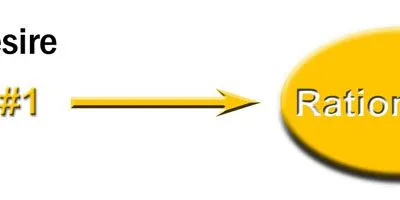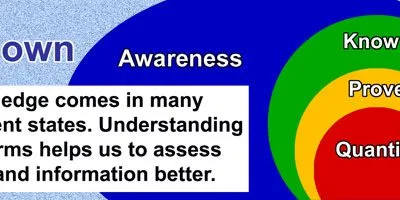Statistical Subjectivity – The Essence of Rankings
Posted on14 Mar 2011
Tagscertainty, clarity, emotional triggers, emotions, knowledge, Malcolm Gladwell, quantify, quantnik, rankings, statistical, subjective, The New Yorker, The Order of Things
Comments4
I ran across a good article by Malcom Gladwell in the February 14 & 21 issue of The New Yorker titled, “The... Read More
Computers Teaching Us About Being Human
Posted on28 Feb 2011
Tagsinstant messaging, vanilla words, Turing Test, The Atlantic, Mind vs. Machine, Loebner Prize, knowledge, computers, communication, Brian Christian, artificial intelligence
Comments0
Brian Christian’s article, “Mind vs. Machine,” in the March 2011 issue of The Atlantic covers the Loebner Prize competition which administers the... Read More
Business Examples of Patience’s Merits
Posted on28 Oct 2010
Tagsreorganization, future, information technology, insight, investment, knowledge, management, management by walking around, marketing, patience, public relations, Rahm Emanuel, experience, rules, sales, strategy, tactics, teachable moment, training, urgency, warfare, workplace, application, action, American, approaches, branding, business, client management software, computers, crisis, organizational culture, employees, example, Expat 21
Comments1
A question posted by Expat 21 asked for examples of patience in the workplace, especially those demonstrating a contrast between American and... Read More
Arbitrariness: The Cornerstone of Conditions
Posted on23 Sep 2010
Tagsknowledge, decisions, democracy, emotions, evalute, first, house, Influence, intuition, conditionality, numbers, Personality, perspective, problem solving, question, second, subjective, third, absolute, arbitrariness, assumptions, build
Comments2
Arbitrariness & First, Second, Third Arbitrariness is vital to intuitive problem solving because it’s related to subjectivity which is related to personality... Read More
The Rise of Intuition
Posted on09 Sep 2010
Tagsmanagement, communications, decisions, emotions, feelings, illusion, Influence, intuition, knowledge, leadership, cognition, nanotechnology, Psychology Today, rationale, sales, scientific, sensors, uncertainty, unknown, wants, advancements, biotechnology, BNET Blog
Comments1
The other day a colleague forwarded this link to the BNET blog speaking to intuition. Embedded in it was a link to... Read More
5 Unconscious Tells of Lying By Bosses, Coworkers and Others
Posted on06 Sep 2010
TagsAnastasia Zakolyukina, belief, confidence, David Larcker, honesty, knowledge, lies, Stanford Graduate School of Business, The Economist, words, positivity
Comments2
Lies are very hard to catch even for experts. Part of this is because we overlook lying for many socially acceptable and... Read More
Shopping for Rationales to Justify Wants and Desires
Posted on14 Jul 2010
Tagswant, subconscious, rationale, problem solving, Personality, knowledge, justification, intuition, emotions, desire, decisions, cognition, approaches
Comments2
Virtually all of our decisions are emotionally based. Therefore, as we saw in my previous posting, Decisions: Roles of Intuition and Cognition,... Read More
Knowledge is Power, Not!
Posted on02 Jul 2010
Tagsmotivation, emotional triggers, use, thinking process, Starship Troopers, seminars, Robert Heinlein, power, learn, knowledge, inertia, improvement, cognition, action
Comments3
In Robert Heinlein’s science fiction book, Starship Troopers, the instructor, Mr. Dubois says, “One can lead a child to knowledge but one... Read More
5 Knowledge States To Assess Facts and Information Better
Posted on19 Jun 2010
Tagsprove, action, awareness, decisions, knowledge, perspective, poker, prevention, problem solving, quantify, reason, unknown, warfare
Comments0
While helping a non-profit, a board member said, “We can only deal with a problem if we know there is one.” Here,... Read More
What is Cognition?
Posted on04 May 2010
Tagscognition, conscious, decisions, intangibles, knowledge, logic, process, rationale, reason, tangibles, Techniques
Comments2
Cognition is the refining of knowledge and the justifying of decisions through rationales. Rationales are thoughts linked by such techniques as reason... Read More






